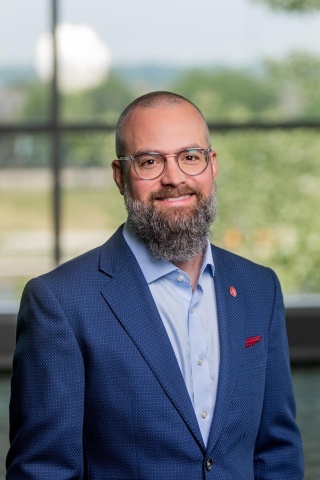The classical liberal movement lost one of its strongest voices when economist Steven Horwitz passed away after a long fight with cancer on June 27, 2021.
“I still believe the world is getting better and better and more awesome. I’m just not going to see as much of it as I thought I would.”
When Horwitz spoke those words on the Free Thoughts podcast in 2019, he was about two years into his battle with multiple myeloma—a disease that ultimately took his life. He was on that podcast to talk about gratitude and the importance of remaining grateful. As an economist, Horwitz knew we have reason to be grateful. For millennia, the average person survived on the equivalent of roughly $3 per day—until around 1800, when that amount skyrocketed. But Steve’s gratitude was not so much for material things but for his own life. This gratitude was exemplified in the happy-warrior spirit that he brought not only to debates about public affairs and economics but also to his battle with cancer.
Horwitz passed away at the age of 57. Yet he lived a full and meaningful life, sharing his exuberance and intelligence with his family, friends, students, and readers across the country.
Born Feb. 7, 1964, Steve Horwitz was raised in the suburbs of Detroit, Mich. He earned his B.A. in economics and philosophy from his beloved University of Michigan before going on to earn an M.A. and a Ph.D. in economics from George Mason University.
He taught economics at St. Lawrence University in Canton, N.Y., from 1989 through 2016, during which time he wrote his seminal economics text Microfoundations of Macroeconomics: An Austrian Perspective, published in 2000. In 2017 he was named to the faculty of Ball State University as its Distinguished Professor of Free Enterprise in the Department of Economics and as director of the Institute for the Study of Political Economy in the Miller College of Business.
His 2015 book, Hayek’s Modern Family: Classical Liberalism and the Evolution of Social Institutions, employed a Hayekian framework to explore the family as a social institution “that perform[s] certain irreplaceable functions in society,” and offered a pointed “defense of the family as a social institution against the view that either the state or ‘the village’ is able or required to take over its irreplaceable functions.” As Acton’s Joseph Sunde noted in a 2015 review of Hayek’s Modern Family, Horwitz argues “that economic prosperity has not only changed the way many view the family (no longer as survival assets), but created more room for love, sacrifice, and investment along the way.”
This is, as Sunde notes, an explication of the economics of love. The economics of love was exemplified in Steve’s life—his love for his family and his love of using the study of economics to instill a sense of wonder and awe in those whose lives he touched.
When asked to describe himself in an interview commemorating his 2020 Julian L. Simon Memorial Award win from the Competitive Enterprise Institute, Horwitz remarked that, “at the end of the day, I think I am a teacher.” Steve as teacher shone through what could be the easily dismissed space of social media. As Tarnell Brown wrote at The Library of Economics and Liberty, Steve “believed in people, even when, no—especially when, we gave him every reason not to. That is, of course, exactly what faith is.”
Family and teaching are perhaps the only two things in life Steve loved more than the pioneering Canadian progressive rock band Rush and the Detroit Red Wings. The joy induced by the former and the of-late anguish of the less-than-competitive state of the latter he detailed often on his Facebook page, a place that, without Steve’s observations of the world around us, seems far less interesting.
And yet, were we ever tempted to think the world was getting less interesting, Steve Horwitz would be there to remind us that it’s “getting better and better and more awesome.” And we should enjoy what we get to see of it.
“If love remains/though everything is lost/we will pay the price/but we will not count the cost.” —Rush, “Bravado”








